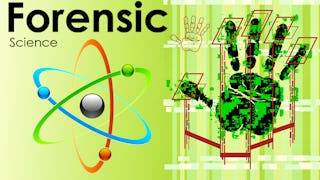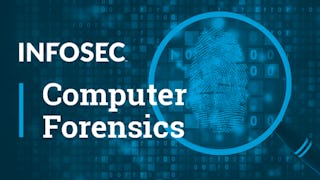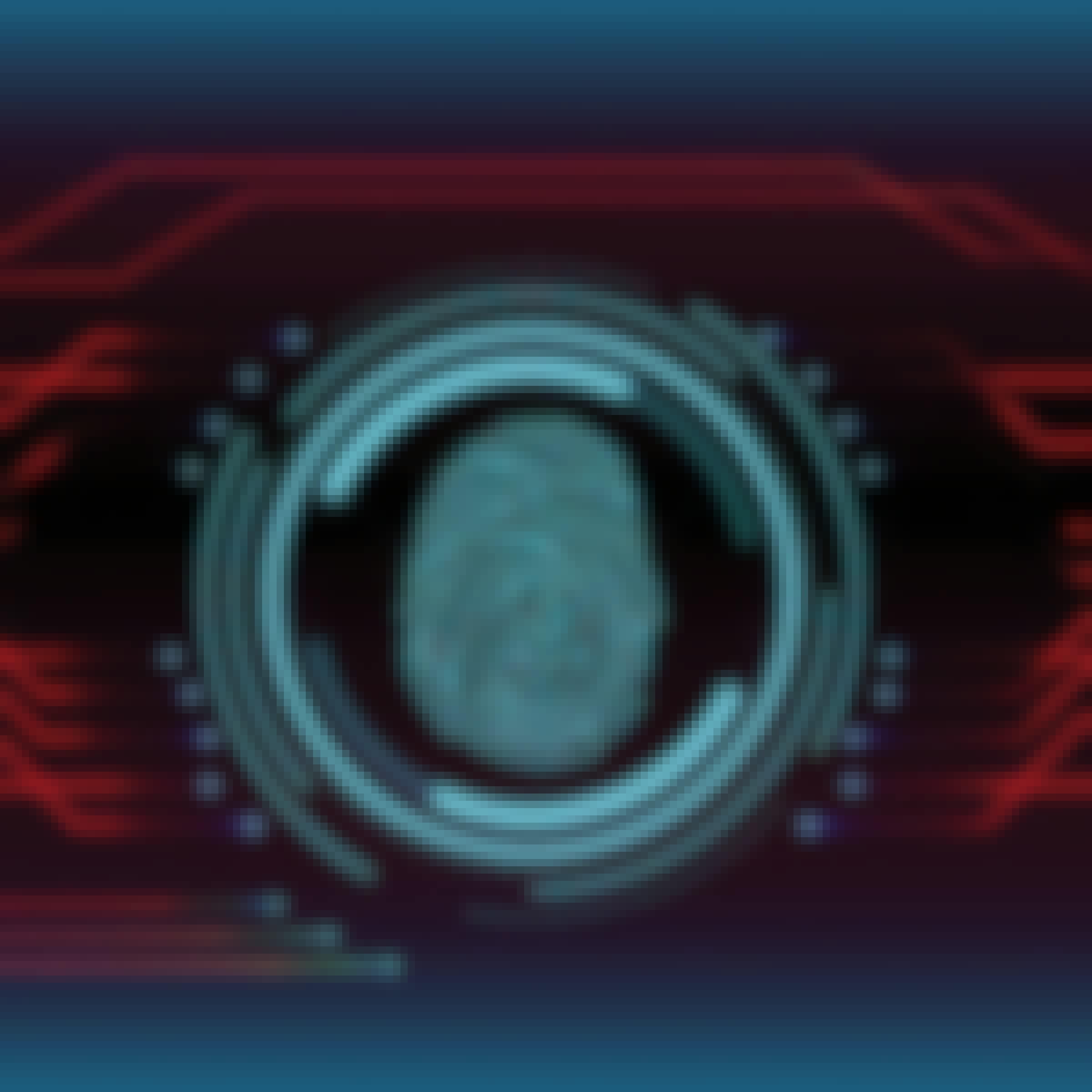Filter by
SubjectRequired
LanguageRequired
The language used throughout the course, in both instruction and assessments.
Learning ProductRequired
LevelRequired
DurationRequired
SkillsRequired
SubtitlesRequired
EducatorRequired
Explore the Computer Forensics Course Catalog
 Status: Free Trial
Status: Free TrialInfosec
Skills you'll gain: File Systems, Microsoft Windows, Cybersecurity, TCP/IP, Network Protocols, Data Security, Litigation Support, File Management, Network Security, Operating Systems, Data Structures, General Networking, Data Validation, Record Keeping, System Software, Data Integrity, Data Analysis Software, User Accounts, USB, System Configuration
 Status: Free Trial
Status: Free TrialEC-Council
Skills you'll gain: Malware Protection, Cybersecurity, Cyber Attacks, Threat Detection, Network Security, Data Integrity, Data Storage, Network Analysis, Microsoft Windows, Mac OS, Linux, Web Applications, File Systems
 Status: NewStatus: Free Trial
Status: NewStatus: Free TrialSkills you'll gain: Computer Security Incident Management, Security Management, Data Security, Data Integrity
 Status: Preview
Status: PreviewNanyang Technological University, Singapore
Skills you'll gain: Criminal Investigation and Forensics, Scientific Methods, Chemistry, Investigation, Case Studies, Biochemistry, Analytical Chemistry, Pharmacology, Laboratory Testing, Hematology, Pathology, Molecular Biology
 Status: Free Trial
Status: Free TrialSkills you'll gain: Incident Response, Computer Security Incident Management, Intrusion Detection and Prevention, Threat Detection, Cyber Threat Hunting, Incident Management, Cybersecurity, Security Management, Security Information and Event Management (SIEM), Data Integrity, Technical Communication
 Status: Free Trial
Status: Free TrialInfosec
Skills you'll gain: Cybersecurity, TCP/IP, Network Protocols, Data Security, Litigation Support, Network Security, General Networking, Record Keeping, Data Storage, Data Integrity, Cryptography, File Management, File Systems, Encryption, Data Validation, Command-Line Interface, Technical Writing, Linux Commands, Unix Commands, Algorithms
What brings you to Coursera today?
 Status: NewStatus: Preview
Status: NewStatus: PreviewMacquarie University
Skills you'll gain: Criminal Investigation and Forensics, Investigation, File Systems, Mobile Security, Cybersecurity, Data Security, Systems Analysis, Data Integrity, File Management, Data Storage, Computer Security Incident Management, Regulation and Legal Compliance, Mobile Development Tools, Incident Response, Endpoint Security, Graphical Tools, Malware Protection, Network Analysis, Disaster Recovery, Graphics Software
 Status: NewStatus: Free Trial
Status: NewStatus: Free TrialUniversity of Colorado Boulder
Skills you'll gain: Image Analysis, Computer Vision, Computer Graphics, Unsupervised Learning, Deep Learning, Visualization (Computer Graphics), Artificial Intelligence and Machine Learning (AI/ML), Data Ethics, Artificial Intelligence, Computational Thinking, Generative AI, Generative Model Architectures, Applied Machine Learning, Data Processing, Linear Algebra, Data Transformation, Probability Distribution
 Status: NewStatus: Free Trial
Status: NewStatus: Free TrialSkills you'll gain: Cyber Threat Intelligence, Cyber Threat Hunting, Threat Detection, Vulnerability Assessments, Incident Response, Threat Modeling, Security Information and Event Management (SIEM), Cybersecurity, Threat Management, Computer Security Incident Management, Cloud Security, MITRE ATT&CK Framework, Cyber Risk, Cyber Security Policies, Data Security, Network Security, Cyber Security Strategy, Personally Identifiable Information, Malware Protection, Risk Management
 Status: NewStatus: Free Trial
Status: NewStatus: Free TrialSkills you'll gain: Incident Response, Business Continuity Planning, Disaster Recovery, Computer Security Incident Management, Investigation, Business Continuity, Cybersecurity, Business Priorities, Resource Management, Resource Allocation, Prioritization, Risk Analysis, Business Analysis, Data Storage Technologies, Law, Regulation, and Compliance, Ethical Standards And Conduct
 Status: NewStatus: Free Trial
Status: NewStatus: Free TrialSkills you'll gain: Cybersecurity, Cyber Threat Intelligence, Network Security, Cyber Security Strategy, Data Security, Security Controls, Continuous Monitoring, Threat Management, Security Strategy, Incident Response, Vulnerability Assessments, Systems Architecture, Risk Management Framework
 Status: NewStatus: Free Trial
Status: NewStatus: Free TrialSkills you'll gain: Cybersecurity, Cyber Threat Intelligence, Cyber Attacks, Cyber Threat Hunting, Cyber Security Strategy, Information Systems Security, Threat Detection, Network Security, Security Information and Event Management (SIEM), Security Management, MITRE ATT&CK Framework, Security Controls, Incident Response, Vulnerability Assessments, Cloud Security, Vulnerability Management, Vulnerability, Network Architecture, Encryption, Configuration Management
Computer Forensics learners also search
In summary, here are 10 of our most popular computer forensics courses
- Computer Forensics: Infosec
- Digital Forensics Essentials (DFE): EC-Council
- CompTIA Cybersecurity Analyst (CySA+) CS0-003: Unit 3: Pearson
- Introduction to Forensic Science: Nanyang Technological University, Singapore
- Incident Response and Digital Forensics: IBM
- Digital Forensics Concepts: Infosec
- Cyber Security: Digital Forensics: Macquarie University
- Computer Vision: University of Colorado Boulder
- Cybersecurity Prevention and Detection: Pearson
- (SSCP) Systems Security Certified Practitioner: Unit 7: Pearson










